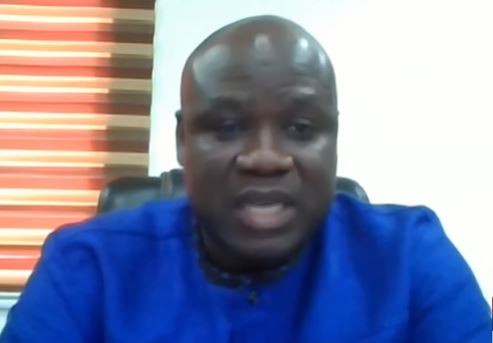The Chief Executive Officer of the Ghana National Chamber of Commerce and Industry (GNCCI), Mark Adu Aboagye, says he is not surprised at the departure of some international companies from Ghana.
He says his outfit had raised concerns about this reality a year ago, warning that unless the country addressed issues creating a hostile business environment, businesses would inevitably collapse and those who can afford pack out.
Speaking on JoyNews’ The Pulse on Thursday, May 9, Mr Aboagye said that international companies, like all businesses, prioritise profitability when establishing operations.
He emphasised that if operating costs outweigh potential profits due to factors like high operational expenses and exorbitant interest rates, it becomes economically impractical to remain in such an environment.
“Nobody sets up a business, especially for the international companies just for the fact that they just want to come to Ghana. They set up that business because they want to make profits because people have invested in the business and they have to give value for their shareholders. So they are looking for profit,” he said.
Mr Aboagye said that several other countries offer more favourable conditions for businesses, including lower interest rates and a more stable economic environment.
He highlighted Ghana's comparatively high interest rates, escalating utility costs, and the depreciation of the cedi against major currencies as significant challenges facing businesses.
“Our interest rate in Ghana at the moment is among the highest in the whole world. So if you are working in an environment like that and you need money to expand, you cannot get it so you go to where you can get the money.
“The cost of utility is also very high. Check electricity for instance, check water - we have had consistent increases in electricity and water and they all fit into the cost of doing business,” he said.
He added the cedi has depreciated close to about 15 per cent, noting that these international companies have "lost 15% of the money of the cedi if you want to convert it into dollars."
According to him, these businesses invest in dollars so when they want to pay money to their shareholders, they have to pay in dollars, hence when converting the cedis into dollars, they need more cedis to be able to get the dollar that they invested earlier.
Latest Stories
-
Ghana-Russia Centre to run Russian language courses in Ghana
3 hours -
The Hidden Costs of Hunger: How food insecurity undermines mental and physical health in the U.S.
3 hours -
18plus4NDC marks 3rd anniversary with victory celebration in Accra
6 hours -
CREMA workshop highlights collaborative efforts to sustain Akata Lagoon
6 hours -
2024/25 Ghana League: Heart of Lions remain top with win over Basake Holy Stars
7 hours -
Black Queens: Nora Hauptle shares cryptic WAFCON preparation message amid future uncertainty
7 hours -
Re-declaration of parliamentary results affront to our democracy – Joyce Bawah
8 hours -
GPL 2024/25: Vision FC score late to deny Young Apostles third home win
8 hours -
Enhancing community initiatives for coastal resilience: Insights from Keta Lagoon Complex Ramsar Site Workshop
8 hours -
Family Health University College earns a Presidential Charter
8 hours -
GPL 2024/25: Bibiani GoldStars beat Nsoatreman to keep title race alive
8 hours -
GPL 2024/25 Bechem United keep title hopes alive with narrow win over FC Samartex
8 hours -
2024/25: Dauda Saaka scores as Asante Kotoko beat Dreams FC
8 hours -
M.anifest reflects on galamsey’s devastation 11 years after ‘No Shortcut to Heaven’
9 hours -
We’ll have the last laugh – Sammy Gyamfi slams EC’s “cantata” re-collation
9 hours

